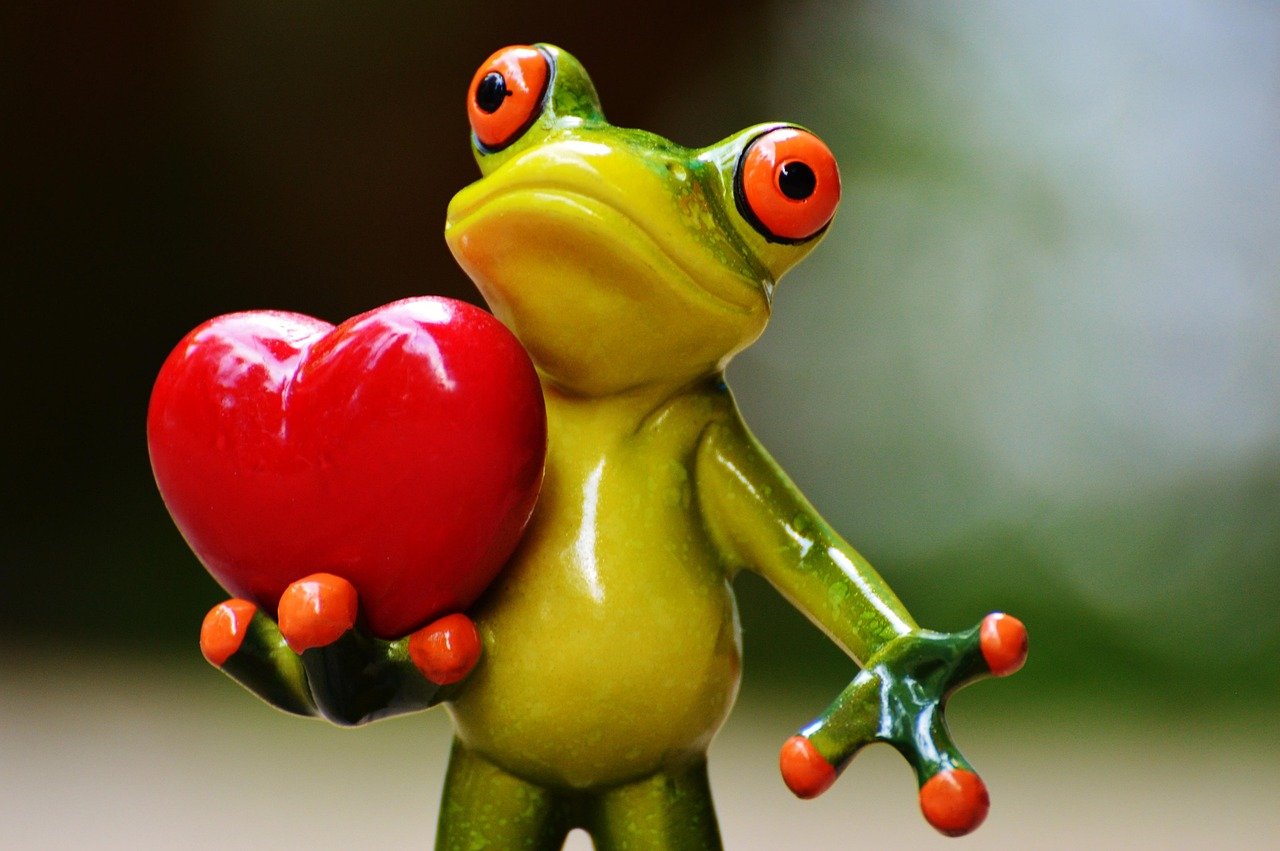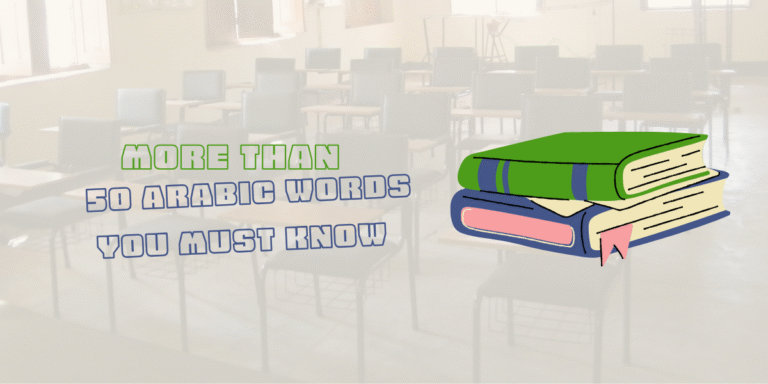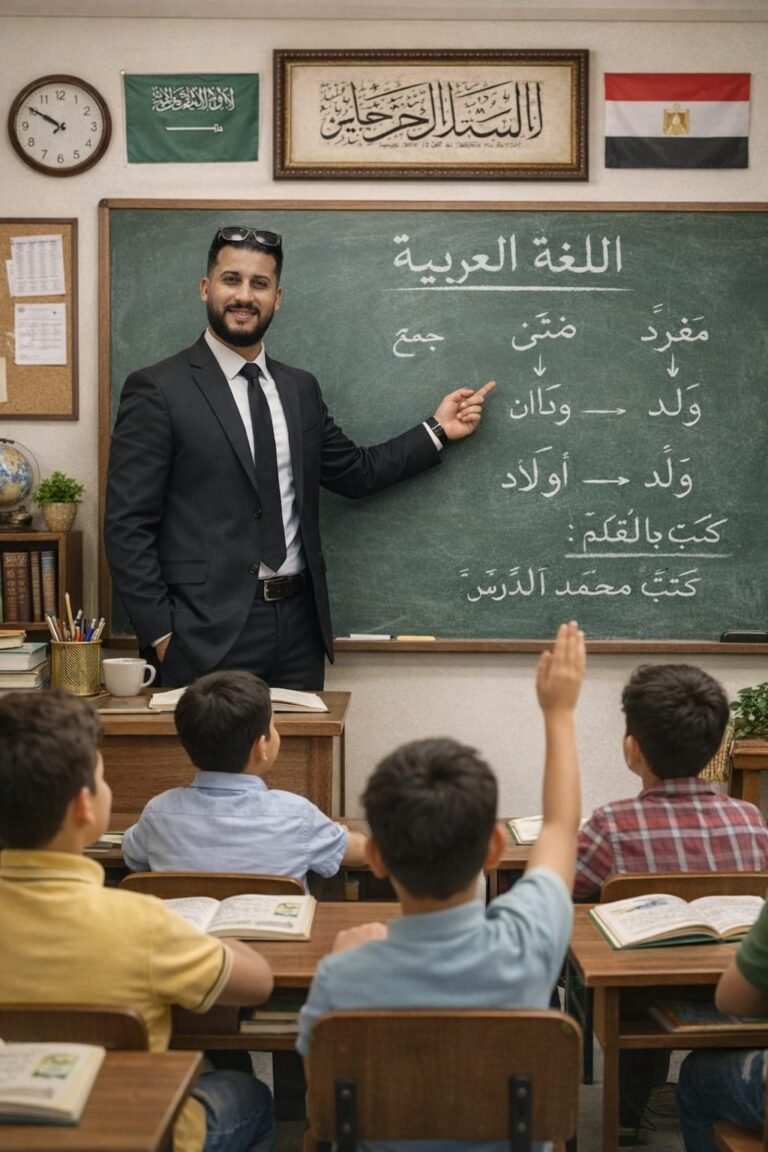Arabic Expressions of Love 2026
Love in marriage has a language of its own. Every couple builds it with words, gestures, and memories. In Arabic culture, that language carries special depth because Arabic itself is full of emotion, poetry, and warmth. The way a husband speaks to his wife, or a wife to her husband, can turn ordinary moments into strong expressions of care and respect. Words in Arabic do more than describe love—they make it grow.
Many learners of Arabic start with greetings and daily expressions, but they often overlook the emotional side of the language. Yet this is where Arabic becomes alive. A simple phrase like “أحبك” (uhibbuka / uhibbuki) can sound different depending on tone, context, and even dialect. When spoken with sincerity, these words can bridge distance, heal misunderstandings, and remind partners of their bond.
Arabic has hundreds of ways to express affection. Some are poetic, some are simple, and some carry a cultural touch that shows respect and tenderness. For example, saying “يا عمري” (ya omri)—“my life”—is more than a compliment. It reflects the idea that one’s partner is a part of their very existence. Expressions like “نور عيوني” (noor oyouni)—“the light of my eyes”—show how language ties emotion to imagery that feels personal and deep.
In many Arab households, couples use these expressions daily, not as dramatic statements but as gentle affirmations. A husband might text his wife “اشتقت لكِ” (ishtaqtu laki)—“I missed you”—after work. A wife might say “تعبت اليوم، لكن صوتك يريحني” (ta’ibtu alyawm, laken sawtuka yureehuni)—“I’m tired today, but your voice comforts me.” These sentences sound small, but they maintain emotional connection.
The power of Arabic love expressions lies in their balance between respect and passion. The language allows you to show warmth without losing formality. That is one reason Arabic couples often sound polite even when they express affection. This politeness is not distance—it is a reflection of value. In Arabic culture, love grows through kindness and thoughtfulness, not only through big romantic gestures.
Learning these sentences also helps learners of Arabic understand the culture better. Behind every word, there is a story. When you learn how Arabs talk about love, you understand how they view marriage, family, and commitment. You learn that love is not only emotion but also action—shown through care, patience, and the right words spoken at the right time.
At Ramdani Arabic Academy, we believe that learning a language means learning the soul behind it. This series will explore Arabic love sentences that husbands and wives use in daily life. You will see how words can strengthen trust, create joy, and renew closeness. Whether you are learning Arabic for communication, culture, or personal connection, you will find meaning in every phrase.
Love needs words to stay alive. Arabic gives you the words to say what your heart feels.

Common Arabic Love Sentences and Their Meanings
Arabic love sentences carry a tone of sincerity. They show affection, respect, and emotional depth. When used between husband and wife, they help build trust and closeness. Below are some common phrases used by Arabic speakers, with explanations of their meaning and emotional value.
1. أحبك (Uhibbuka / Uhibbuki)
Meaning: I love you
This is the most direct way to express love in Arabic.
- “Uhibbuka” is said by a woman to a man.
- “Uhibbuki” is said by a man to a woman.
It’s simple but powerful. When said with sincerity, it can carry deep emotion without needing more words.
2. اشتقت لك (Ishtaqtu laka / laki)
Meaning: I missed you
Used by couples when they are apart. It shows longing and emotional connection. A husband returning home from work might say, “Ishtaqtu laki,” to show that he thought about his wife during the day.
3. أنتِ قلبي / أنتَ قلبي (Anti qalbi / Anta qalbi)
Meaning: You are my heart
This sentence expresses that the other person is at the center of your emotional life. It is often used in intimate, loving conversations.
4. يا عمري (Ya omri)
Meaning: My life
A tender way to address your partner. It suggests that life without them would feel incomplete. It’s commonly used in daily speech among Arabic couples.
5. نور عيوني (Noor oyouni)
Meaning: The light of my eyes
A poetic phrase. It means your partner is the most beautiful part of your world. In Arabic culture, the eyes are symbols of beauty and emotion, so this phrase has deep affection behind it.
6. حبيبتي / حبيبي (Habibati / Habibi)
Meaning: My beloved
“Habibi” (to a man) and “Habibati” (to a woman) are used widely. They are not only romantic but also affectionate. Many couples use these daily in conversation, text messages, or greetings.
7. اشتقت لصوتك (Ishtaqtu lisawtik / lisawtuki)
Meaning: I missed your voice
This phrase shows emotional intimacy. It means you don’t only miss the person physically but miss hearing their presence.
8. ربي يخليك لي (Rabbi yekhalliik li)
Meaning: May God keep you for me
This combines affection with prayer. It’s both loving and spiritual, reflecting how Arabic speakers often connect emotion with faith.
9. أنت سعادتي (Anta sa’adati / Anti sa’adati)
Meaning: You are my happiness
Used to express gratitude and emotional fulfillment. It reminds your partner that their presence brings peace and comfort.
10. لا أستطيع العيش بدونك (La astati’u al’aysh bidounak / bidouniki)
Meaning: I can’t live without you
A deeper declaration used in serious emotional conversations. It reflects strong attachment and devotion.
Each of these phrases shows how Arabic blends language and emotion. Words are not only sounds—they carry layers of meaning shaped by culture and feeling. When you learn how to use them naturally, your Arabic becomes more human and expressive.
In daily life, couples mix these phrases with smiles, tone, and gestures. The sound of the words, the pauses between them, and the look in the eyes give them real meaning. That’s what makes Arabic love sentences special—they are alive.
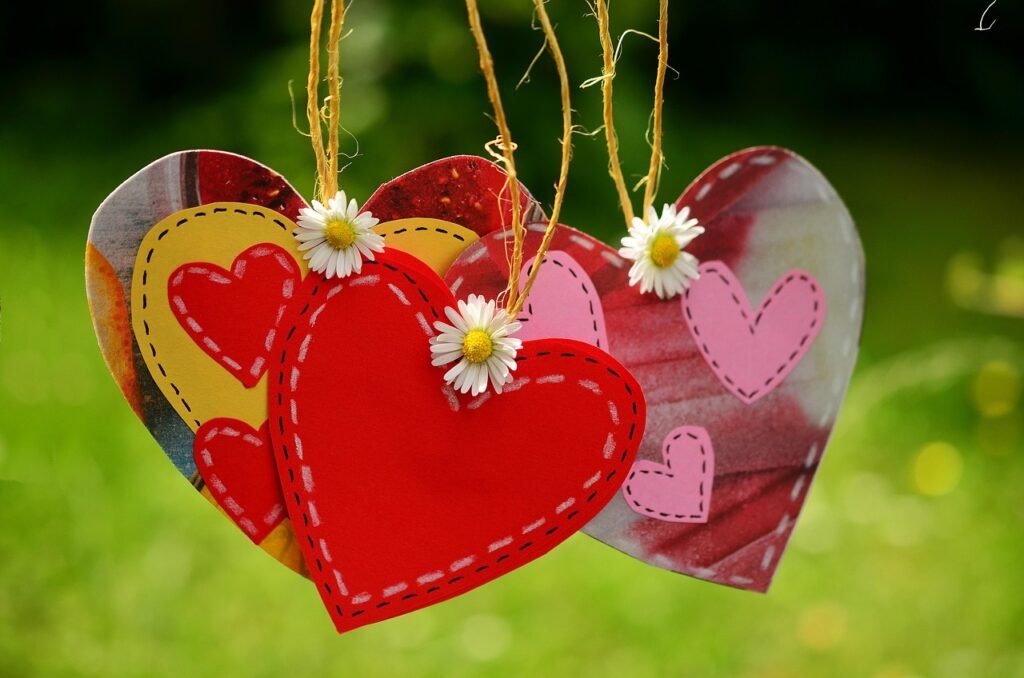
How Husbands and Wives Use These Sentences in Daily Life
Love in marriage grows through small moments. In Arabic-speaking homes, words play a central role in keeping those moments alive. Husbands and wives don’t just use love sentences on special occasions. They use them naturally in daily conversations, short messages, and quiet gestures that strengthen connection.
Below are examples of how couples use Arabic love sentences in everyday life.
1. Morning greetings
Many Arabic couples start the day with gentle words.
- “صباح الخير يا عمري” (Sabah al-khair ya omri) — Good morning, my life.
- “صباح الحب يا حبيبتي” (Sabah al-hubb ya habibati) — Good morning, my love.
These greetings add warmth to a normal morning. They turn routine into affection. When repeated daily, they remind each partner that love begins with attention.
2. During the day
Even short messages matter. A husband might text his wife at work:
- “اشتقت لكِ” (Ishtaqtu laki) — I miss you.
- “أتمنى يومك جميل مثلك” (Atamanna yawmuki jameel mithluk) — I hope your day is as nice as you.
A wife might reply:
- “صوتك يريحني دائمًا” (Sawtuka yureehuni dayman) — Your voice always comforts me.
These quick exchanges build emotional presence, even when physically apart.
3. When showing care
After a long day, words of comfort have strong meaning.
- “تعبت اليوم، خذ راحتك يا حبيبي” (Ta’ibta alyawm, khudh rahatuka ya habibi) — You worked hard today, take your rest my love.
- “وجودك ينسيني التعب” (Wujooduka yunsini atta’ab) — Your presence makes me forget the tiredness.
These sentences show empathy. They turn care into emotional connection.
4. In moments of tension
Words can also heal. When couples disagree, Arabic expressions of affection help calm the situation.
- “ما أقدر أزعل منك يا قلبي” (Ma aqdir az’al mink ya qalbi) — I can’t stay upset with you, my heart.
- “زعلنا لحظة بس حبنا باقي” (Za’alna lahza bas hubbna baqi) — We were upset for a moment, but our love stays.
These phrases don’t ignore conflict; they remind both partners of shared value and respect.
5. Before sleeping
Night conversations often carry tenderness.
- “تصبح على خير يا حبيبي” (Tusbih ala khair ya habibi) — Good night, my love.
- “أحبك أكثر كل يوم” (Uhibbuka akthar kulla yawm) — I love you more every day.
They close the day with connection, not silence.
6. Special occasions
Anniversaries, birthdays, or religious holidays give space for deeper expressions.
- “وجودك بجانبي هو أجمل هدية” (Wujooduka bijanbi huwa ajmal hadiya) — Having you beside me is the best gift.
- “أدعو الله أن يديم حبنا وسعادتنا” (Ad’u Allah an yudeem hubbana wa sa’adatana) — I pray God keeps our love and happiness forever.
This mix of affection and faith gives Arabic love expressions spiritual weight.
In Arabic culture, love is shown through balance—between words and action, between emotion and respect. Couples often speak kindly in public and express deeper affection in private. This creates harmony, not distance.
The real power of these sentences is not in the words themselves but in the way they are spoken. Tone, timing, and sincerity make them meaningful. A quiet “ya habibti” said with care can express more than long speeches.
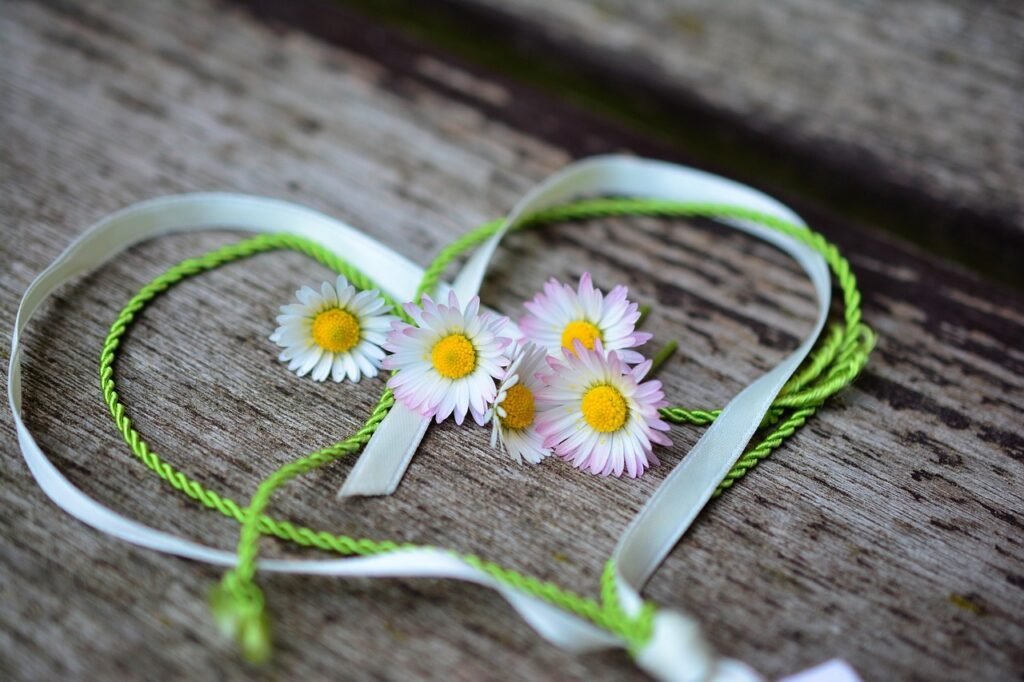
Regional Variations in Arabic Love Expressions
Arabic is spoken across many countries. Each region has its own dialect, rhythm, and way of expressing love. The words may change, but the feeling remains the same. Understanding these differences helps learners connect with native speakers naturally.
1. Egyptian Arabic
Egyptians use warm and friendly expressions. Their tone is playful and emotional. Love phrases in Egyptian Arabic often sound musical because of the soft pronunciation.
Common examples:
- “بحبك” (Bahebak to a man, Bahebek to a woman) — I love you.
- “وحشتني” (Wahashtini) — I missed you.
- “يا روحي” (Ya rouhi) — My soul.
Egyptian couples often mix humor with affection. They use love words in daily talk, not just romantic moments. The Egyptian media, especially films and songs, have made these phrases popular across the Arab world.
2. Levantine Arabic (Lebanon, Syria, Jordan, Palestine)
The Levantine dialect sounds soft and intimate. It is known for emotional expression and romantic tone.
Common examples:
- “بحبك كتير” (Bhebbak kteer / Bhebbik kteer) — I love you so much.
- “إنت قلبي” (Inta albi / Inti albi) — You are my heart.
- “مشتاقتلك” (Mushtaa’etlak / Mushtaa’etlik) — I miss you.
Levantine speakers use affectionate nicknames like “ya hayati” (my life) and “ya omri” (my life). These are common in songs and everyday speech. The tone carries both warmth and elegance.
3. Gulf Arabic (Saudi Arabia, Kuwait, UAE, Qatar, Oman)
In the Gulf, love expressions often mix tenderness with respect. Couples use words that sound polite and formal but still convey deep feeling. Religion and tradition shape communication, so expressions of love are often modest yet sincere.
Common examples:
- “أموت فيك” (Amoot feek / Amoot feeki) — I adore you.
- “اشتقت لك وايد” (Ishtaqt lek wayed) — I missed you a lot.
- “الله لا يحرمني منك” (Allah la yihrimni mink) — May God never deprive me of you.
These phrases often include references to God, showing that love is seen as a blessing and responsibility.
4. Maghrebi Arabic (Morocco, Algeria, Tunisia)
In North Africa, Arabic mixes with Berber and French influences. Love expressions sound more rhythmic and direct.
Common examples:
- “نحبك بزاف” (Nhebbek bezaf / Nhebbek bzaaf) — I love you very much.
- “وحشتني بزاف” (Waheshni bezaf) — I miss you a lot.
- “نتي عمري” (Nti omri) — You are my life.
Maghrebi speakers often use affectionate tone and body language. They may combine Arabic with French in daily speech: “Mon amour, nhabbek.” This shows how love language adapts across cultures.
5. Sudanese Arabic
Sudanese Arabic carries warmth and simplicity. The tone is humble but emotional.
Common examples:
- “بحبك شديد” (Bahebak shadeed) — I love you deeply.
- “إنت الغالي عليّ” (Inta al-ghali alayya) — You are precious to me.
Sudanese expressions focus on appreciation and loyalty more than passion. They reflect the culture’s respect for emotional stability in marriage.
Across all dialects, the same feeling connects people: affection expressed through sincerity. Whether someone says “Bahebak” in Cairo or “Nhebbek” in Casablanca, the meaning stays clear.
Learning these regional variations helps you sound more natural when speaking Arabic. It also shows that love in the Arab world is diverse but unified by care, respect, and emotional strength.

The Influence of Arabic Poetry on Modern Love Language
Arabic poetry has shaped how people speak about love for centuries. The language of poets still echoes in how husbands and wives express affection today. Even simple words used in daily life often carry roots from old verses, where poets described longing, beauty, and devotion.
1. Love and language in classical poetry
Arabic poetry has always valued emotion expressed with balance and precision. Poets from the pre-Islamic and early Islamic periods used love as a way to speak about loyalty, patience, and the soul’s attachment to another.
Examples:
- The poet Antarah ibn Shaddad described his love for Abla not only as desire but as honor and endurance.
- Qays ibn al-Mulawwah, known as Majnun Layla, turned love into a lifelong devotion that became legend.
These poems shaped the emotional vocabulary of Arabic. Words like qalb (heart), ruh (soul), and hayat (life) became symbols of affection that are still used today in phrases such as “anti qalbi” (you are my heart) or “ya rouhi” (my soul).
2. The poetic rhythm in daily speech
Modern Arabic love expressions often keep the poetic rhythm even in ordinary talk. The balance of words and sound matters. For example:
- “نور عيوني” (noor oyouni) and “يا عمري” (ya omri) both have short, musical flow.
- “بحبك موت” (bahebak moot) — “I love you to death” — shows strong emotion but with rhythm that sounds natural in conversation.
Many couples use poetic forms without realizing it. The repetition of sounds and short balanced phrases gives Arabic its emotional tone.
3. Proverbs and poetic wisdom
Arabic love expressions also draw from proverbs rooted in poetry. These sayings show that love is seen not only as emotion but as commitment.
Examples:
- “الحب أفعال لا أقوال” — Love is actions, not words.
- “من أحبك صدقك” — The one who loves you tells you the truth.
- “الحب رزق من الله” — Love is a gift from God.
These expressions influence how couples communicate. They remind people that love must be expressed with honesty and respect.
4. Influence of modern Arabic songs and literature
Modern singers and writers continue the tradition of poetic love. Artists like Fairuz, Abdel Halim Hafez, and Umm Kulthum turned poetic language into emotional songs that every Arabic speaker knows.
Phrases such as:
- “أنت عمري” (Enta Omri) — You are my life.
- “بحبك وحشتيني” (Bahebak, wahashtini) — I love you, I missed you.
These songs shaped how people express love in speech and text. Many husbands and wives use lines from songs or poems in messages, especially during anniversaries or when apart.
5. Classical words that survive in modern talk
Some expressions still sound poetic even when used casually.
- “غاليتي” (Ghalyati) — My precious one.
- “يا مليكة قلبي” (Ya maleekat qalbi) — O queen of my heart.
- “عشقك يسكن روحي” (Ishqak yaskun roohi) — Your love lives in my soul.
While not used daily, these phrases appear in letters, wedding vows, and romantic notes. They connect modern love language with the beauty of the old Arabic tongue.
Arabic poetry preserved emotion through precision and respect. That influence continues today. When a husband says “ya habibti”, he echoes generations of poets who used the same word to describe eternal affection.
The Arabic learner who studies love expressions also learns a cultural truth: love in Arabic is not loud or careless. It is quiet, deep, and built through words chosen with care.
Final words
Love needs care to stay alive. In Arabic, words are one of the strongest ways to show that care. A husband’s kind phrase or a wife’s soft reply can turn a normal moment into connection. The Arabic language gives couples endless ways to express that connection with clarity and respect.
Arabic love sentences are more than speech. They carry culture, faith, and tradition. Each phrase has meaning that reaches beyond emotion. When a person says “ya omri” or “habibi”, they are not just speaking—they are building understanding and warmth.
Learning these expressions helps you see how language and love work together. You learn how Arabs value patience, gentleness, and gratitude in relationships. You see that affection is not only about strong emotion but about daily kindness. Words in Arabic teach that love grows when spoken sincerely and often.
At Ramdani Arabic Academy, our goal is to help learners go beyond grammar and vocabulary. We teach the emotional side of the Arabic language—the tone, the context, and the meaning behind each word. Through our lessons, courses, and articles, students learn how Arabic connects people, not just how it communicates ideas.
We believe that when you learn to express love in Arabic, you understand the heart of the culture. You begin to speak not only with accuracy but with feeling. You also see how the Arabic view of marriage values trust, respect, and calm expression.
I am Ramdani Mohamed, founder of Ramdani Arabic Academy. My work focuses on helping learners of Arabic from all over the world discover how this language shapes thought and emotion. Every article, lesson, and resource we share is built to make your learning experience personal and meaningful.
Language builds relationships. Arabic shows you how to do that with words that matter. When you use Arabic love sentences with sincerity, you are not just learning a phrase—you are giving life to emotion that never loses its strength.

